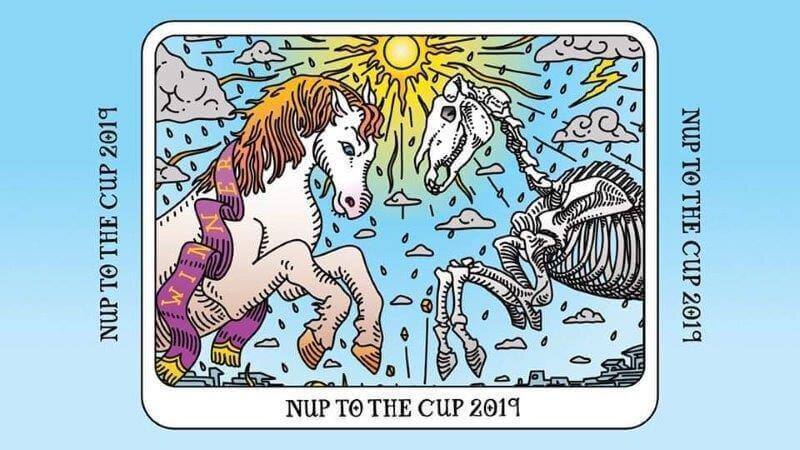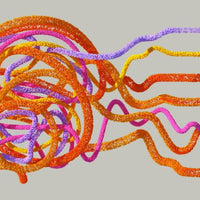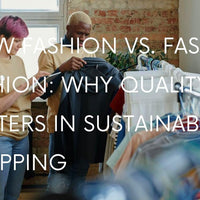Every year, during October and November, the Spring Racing Carnival takes place in Melbourne. The final event of the festival is the Melbourne Cup, which is a public holiday for all those in Victoria and see’s 100,000 attendees every year. While I have never seen the horse race myself, I always hear a larger hum of excitement about the fashion, the festivities and the free-spirited gambling at the races, than anything to do with horses. This alone used to be enough to turn me off the whole idea of the Melbourne Cup. But after learning about the cruelty and slaughter that happens behind the scenes, I cannot silently sit back and enjoy a public holiday knowing the impact this day has on thousands of horses in Australia. This is why we are saying a big fat NUP to the Melbourne Cup.
Imported horses
In the last six years, six horses have died at the Melbourne Cup and all six of these were imported. They had travelled from as far away as Italy, Great Britain and Ireland, all for the glory of racing in the Melbourne Cup. It has also been common practice since the first-ever foreign winner of the Cup, Irish stayer Vintage Crop (1993), for the horses to go straight to the races once arriving in Melbourne, meaning they don’t get any freedom or even practise runs after their long and stressful journeys. According to Nine.com.au “This year, 11 Irish horses will race in the Cup, with five from Great Britain, two each from New Zealand and Australia, and one each from Japan, France, Germany and USA.” This means there is a very real risk that some of these horses will be running their last ever race, and living their last ever day.

The death sentence of a broken leg
According to Rick Arthur, equine medical director for the California Horse Racing Board (interviewed for an article by National Geographic) horses have extremely soft tissue in their legs. Due to this, the bone often tears through skin or cuts off circulation to the rest of the limb, leaving them prone to infection. “Even if the horse’s bone could be set, it wouldn’t be able to support weight for several weeks. If horses can’t distribute their weight relatively evenly, they risk laminitis, a potentially fatal inflammation of tissue inside the hoof. In general, if a horse can’t stand on all four legs on its own, it won’t survive and will be euthanized”. Rick believes more deaths may be occurring because horse racing has become more competitive.
And he’s right. In Australia, 122 horses died in the last year alone
From the 1st of August 2018 to the 31st of July 2019, the Coalition for the Protection of Racehorses collected data from stewards reports from every state and territory in Australia. They compiled a report of the horses who have died in racing and the reasons why:
Key Findings
- 7 horses collapsed and died.
- 10 horses died from cardiac causes.
- 5 horses died from bleeds.
- The state with the highest recorded deaths was New South Wales with 51, followed by Victoria with 31 and Queensland with 25.
- 54 of the horses that were killed had been raced as a 2-year-old.
- 10 horses were only 2-years-old when they died on track.
- 17 horses are still listed as ‘active’ on the Racing Australia website at the time of writing, even though some have been dead for almost a year.
On average one horse will die on Australian racetracks every 3 days.
So far, we have only discussed the deaths that occur on Australian racetracks. For some, the sight of a veil erecting on the racetrack coupled with a gunshot is enough to turn them off horse racing for good. I know it did the trick for me when I watched a horserace with my father on TV. I can’t remember how old I was but I could never see it as a ‘sport’ again. For others though, this is the part where they turn a blind eye to so they can keep sipping their cocktails placing bets at the track.
But the death count doesn’t stop at the finish line
I have often heard the argument that horses love racing and that they are treated like royalty. While this may be the case for some, the majority of race horses have a more grizzly future once their career on the racetrack has ended. An investigation by 7.30 revealed registered, thoroughbred race horses were being sent to abattoirs in Australia.
Racing Australia reports in their 2018 media release that over 14,000 foals were produced for racing between 2017 and 2018 alone. They overproduce to raise their chances of breeding the next seasons winners. But this overproduction leads to an astronomical amount of waste. And by waste, I mean horses. Each year, more than 8000 horses retire from racing, and according to Racing Australia, less than 1% end up in an abattoir. However, Paul Mcgreevy a Veterinarian and Professor of Animal Behaviour and Welfare Science at the University of Sydney, notes on 7.30 that these numbers simply do not add up, since 4,000 horses seem to ‘disappear’ every year.
I would like to add here that it is currently completely legal to send racehorses to abattoirs, in spite of Racing Australia’s attempts to shield us from thinking it occurs often at all. In fact, ABC reveals undercover footage of at least 300 race horses being killed in a single abattoir near Brisbane. Each horses branding can be seen on video, and I can only assume this was a small number of the total amount considering the footage was only from 22 days, over the span of two years.

Is gambling to blame?
A report from the Sydney Morning Herald stated that Australians wagered $657 million over the course of the Melbourne Cup Carnival in 2016, “That’s enough money to crowd-fund the annual wages of 5385 registered nurses.”
Personally, I despise gambling. It targets those in dire situations are rarely pays off. It is addictive and far too easily accessible in Australia. However, if someone wishes to place a bet on their favourite sports team then so be it. But gambling on animal sports is one of my biggest hatreds. It incentivises companies to find more and more ways to make money out of animals that end up spent and abused with nothing to show for it.
The average AFL player has a salary above $300,000 per year, they put themselves through rigorous training and get fame and money in return. I can think of 300,000 better things to do with that amount of money than give it to a football player, but they earn it fair and square.
The 1st place winner of the Melbourne Cup walks away with over $4,000,000! 5% goes to the jockey, 10% to the horse’s trainer… and I am not sure exactly what the horse gets. I don’t even think it knows that is has been vigorously trained, injured and possibly shipped across the world just for a group of people to make a profit. What I do know is that without gambling, and without such exorbitant prizes, less people would train for the Cup, less horses would be bred for racing, and less horses would end up dead on the track or wasted as a result.
As I mentioned before, I hear far more people excited about gambling on the Melbourne Cup than those excited for the race itself. Melbourne Cup is glamorised as a place to dress up, hang out with your friends, drink, gamble… and maybe watch the races? It seems to me like the horses themselves are a living, breathing, suffering afterthought. And I for one want nothing to do with it.
So what can you do instead of watching the Melbourne Cup?
Each year, incredible businesses host alternative parties to help us say NUP TO THE CUP in style. There is a great list here of the biggest events you can join around Australia. My favourite has to be the Canine Cup in Adelaide which is live streamed at 3pm (Adelaide time). The Canine cup features pups ‘racing’ against each other as fast as they want, if they want, with all the bloopers along the way.
The largest event in Melbourne takes place just opposite Flemington Racecourse, where the Melbourne Cup is held. Fashuns on the Field is a fun way to protest the cup by dressing up and showing regular racegoers what cruelty-free fun looks like. There are human races throughout the day including hat making, crawling and racing in underwater themed attire. These races are also live streamed so you will have plenty of cruelty free content to watch!








0 comments